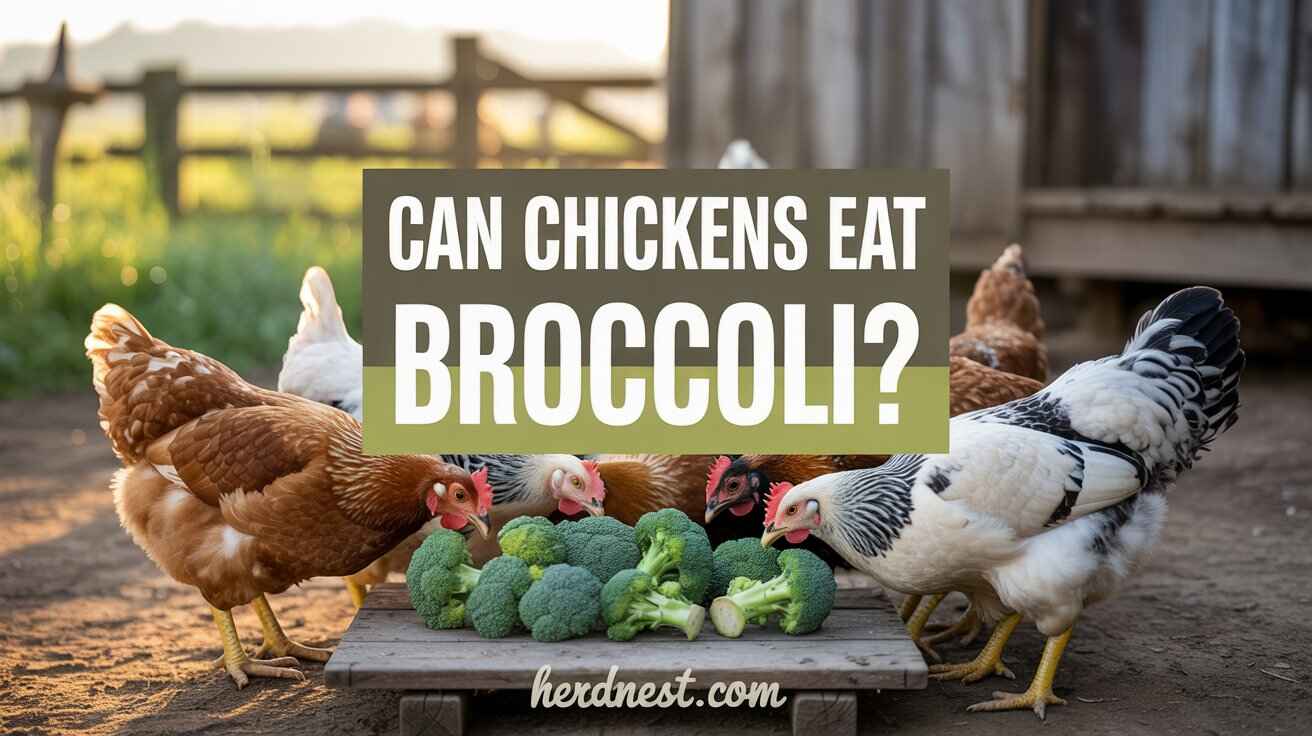Beets are a colorful, nutrient-dense root veggie that can do wonders for your flock’s overall health. Packed with essential nutrients, they’re a great addition to your chickens’ diet, offering numerous benefits when fed in the right way.
Over the years, I’ve noticed how my feathered friends perk up with a touch of variety in their menu, and beets have become a firm favorite in the coop. Not only are they a tasty treat, but they also provide great nutritional value, supporting strong immune systems and energy levels.
However, there’s a bit of thought that goes into incorporating beets into their diet safely. It’s important to prepare them properly, whether by steaming, shredding, or chopping them raw, ensuring they’re easier to eat and digest.
Stick to moderate portion sizes, as too much of any vegetable can overwhelm their systems. Always consider how appropriate it is for your flock’s unique needs, as a balanced diet is key to keeping your feathered companions happy and healthy. With careful planning, you’ll find that adding this root veggie to their menu can be a rewarding way to support their well-being.

Table of Contents
ToggleCan Chickens Eat Beets?
Chickens can safely eat beets, and when fed in moderation, this vibrant root vegetable offers a range of health benefits for your flock.
Rich in vitamins, minerals, antioxidants, and fiber, beets can boost energy levels, support immune health, aid digestion, and even enhance the nutritional quality of eggs. They can be served fresh, cooked, shredded, or in forms like beet pulp and powder, with each variation offering different nutritional profiles.
However, it’s essential to prepare them properly and avoid overfeeding, limiting beets to no more than 10% of the chicken’s diet to prevent digestive issues. With careful introduction and observation, beets can be a colorful and nutritious treat for happy, healthy chickens.
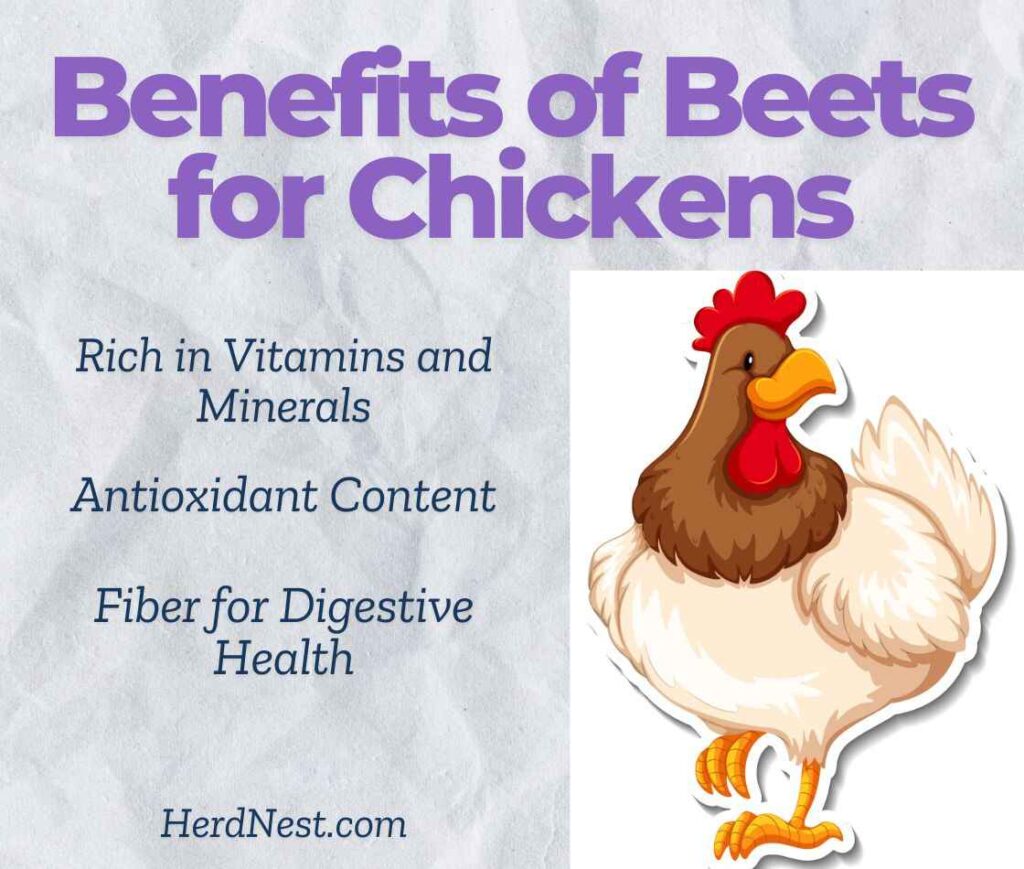
Benefits of Beets for Chickens
Incorporating beets into your flock’s diet can offer several benefits. As an excellent source of essential nutrients, they help your chickens maintain energy levels and overall wellness. These vibrant additions to their meals are a great way to naturally support their health, making their diet both nutritious and varied.
Rich in Vitamins and Minerals
Beets are packed with a wide range of vitamins and minerals, including folate, manganese, and potassium. These nutrients serve crucial roles in supporting bodily functions, such as red blood cell production, bone health, and muscle function, making them an excellent addition to your flock’s diet.
Antioxidant Content
Beets are widely known for their high antioxidant content, particularly the presence of betalains. These powerful compounds work to protect cells from damage caused by free radicals, which helps in supporting overall health and reducing the risk of certain diseases. Adding beets to your chickens’ diet ensures they benefit from these natural health boosters.
Fiber for Digestive Health
Adding beets to your flock’s diet provides valuable fiber, which actively supports digestive health in chickens. By aiding the movement of food through the digestive tract and encouraging the growth of beneficial gut bacteria, beets help keep their digestive system functioning smoothly and efficiently.
Moderation is Key
Although beets provide numerous health benefits, it’s crucial to feed them to your chickens in moderation. Treat beets as an occasional snack or supplement, rather than a staple food in their diet, and ensure they make up no more than 10% of their total diet to avoid nutrient imbalances or digestive issues.
Always monitor your flock closely for any adverse reactions or digestive problems after introducing beets into their meals to ensure their well-being.
Beets and Egg Quality
Feeding beets to your hens might make you curious about their impact on egg quality or color. Occasionally, you might notice pink or red-tinged egg whites, caused by the betalains in beets, but this is a harmless and temporary change that won’t affect the taste or nutritional value of the eggs.
In fact, research indicates that adding beetroot to the diet of laying hens can significantly increase the nutritional value of their eggs by enhancing retinol concentrations and boosting their antioxidant capacity.
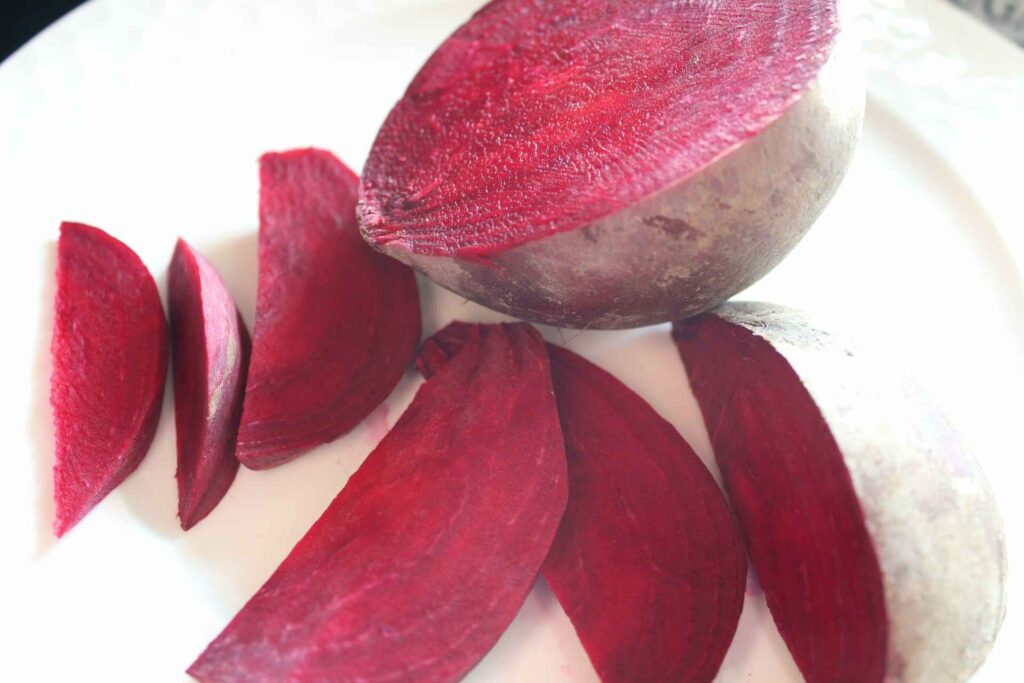
Incorporating Beets into Your Chicken’s Diet
Incorporating beets into your chicken’s diet is simple once you know how. Whether adding them directly to their feeds or serving them as occasional treats, beets can bring variety and nutrition to your flock’s meals.
Fresh Beets
Fresh beets can be a healthy treat for your chickens when offered in moderation. To make them easier to consume, you can chop or shred the beets into manageable pieces.
These can be served on their own or mixed with other fruits and vegetables for a colorful and enticing treat. While beets are highly nutritious, remember to monitor portion sizes to prevent overfeeding, which may lead to digestive issues or nutrient imbalances.
Proper Preparation of Beets for Chicken Feed
Properly preparing beets ensures your flock can safely enjoy their benefits. Always wash and scrub the beets thoroughly to remove dirt, debris, or any contaminants. You can chop or shred them to avoid choking hazards, especially for younger or older chickens. If needed, cooking or steaming the beets can soften them, making them easier to digest, particularly for birds with sensitive systems.
Cooked Beets
Cooking beets by steaming or boiling until they are soft makes them easier for your chickens to digest. Once prepared, you can mash the cooked beets and mix them with your chicken’s regular feed. Be sure to avoid adding salt, seasonings, or any harmful ingredients, sticking to plain beets to ensure they receive the nutritional benefits without any unnecessary additives.
Preparing Cooked Beets for Chickens
To prepare cooked beets, peel and chop them into small pieces, then steam or boil them for 20–30 minutes until soft. Allow the beets to cool before mashing or pureeing them. Mix the mashed beets into their feed in small amounts, and gradually increase the portion while monitoring for any digestive issues.
Beet Pulp and Other By-Products
Beet pulp is a fibrous, dried by-product from sugar beet processing that is often used as a fiber supplement in animal feed, including for chickens. When added to their diet, it can offer many benefits, but it should always be used in moderation.
Begin with small amounts and gradually increase the portion while monitoring for digestive issues or changes in droppings. As a general guideline, limit beet pulp to 5-10% of your chicken’s total diet.
Benefits of Beet Pulp for Chickens
Beet pulp is high in fiber, aiding in digestion and promoting a healthy gut. It is also low in calories and fat, making it suitable for weight management. Additionally, it can help maintain consistent droppings, reduce odor, and even improve egg production and shell quality, making it a valuable addition to your flock’s diet.
Other Beet-Based Products
Beyond fresh beets, cooked beets, and beet pulp, there are other beet-based products that can be included in your chicken’s diet. Beet greens, the leafy tops of beets, are high in vitamins and minerals but should be offered in moderation due to oxalic acid, which requires them to be limited.
Beet juice is another option, often given in small amounts as a treat or to encourage water consumption. Lastly, beet powder, made from dried, powdered beets, can be mixed into feed for a nutrient boost.
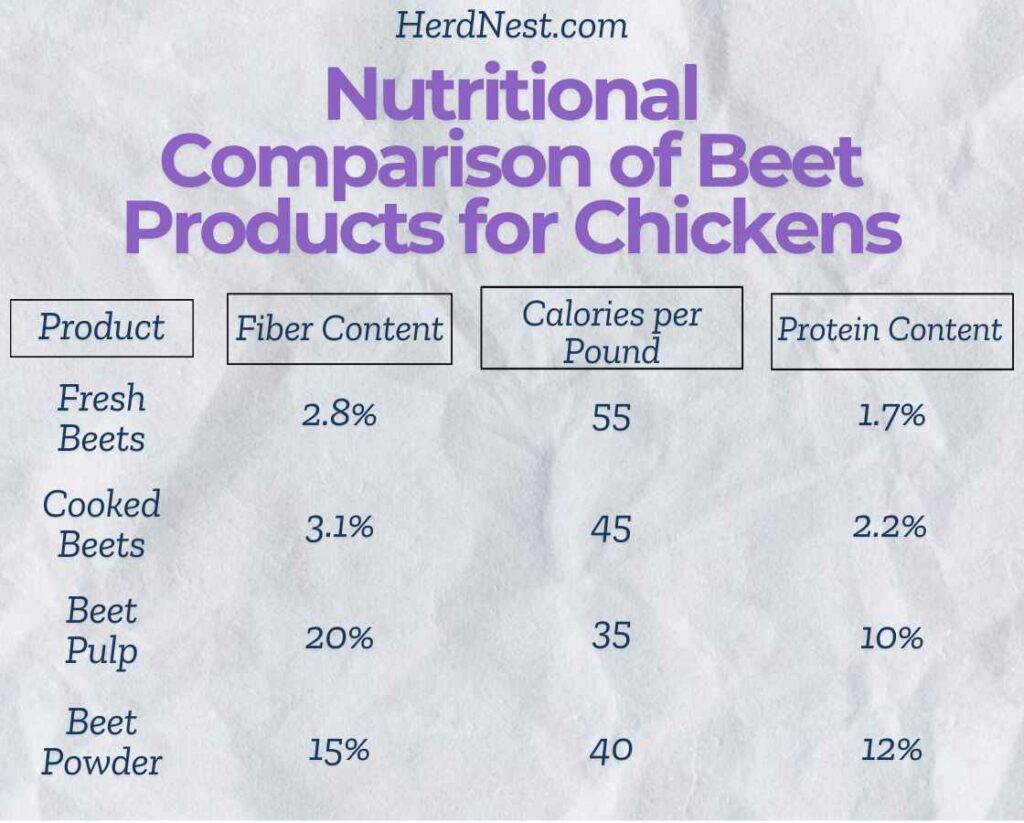
Nutritional Comparison of Beet Products for Chickens
When comparing beet products, the fiber content, calories per pound, and protein content vary significantly. Fresh beets contain 2.8% fiber, 55 calories, and 1.7% protein.
Cooked beets have slightly higher fiber (3.1%), lower calories (45), and 2.2% protein. Beet pulp stands out with 20% fiber, 35 calories, and 10% protein, while beet powder delivers 15% fiber, 40 calories, and 12% protein. With any new food introduction, always start slow and monitor your flock for any adverse reactions.
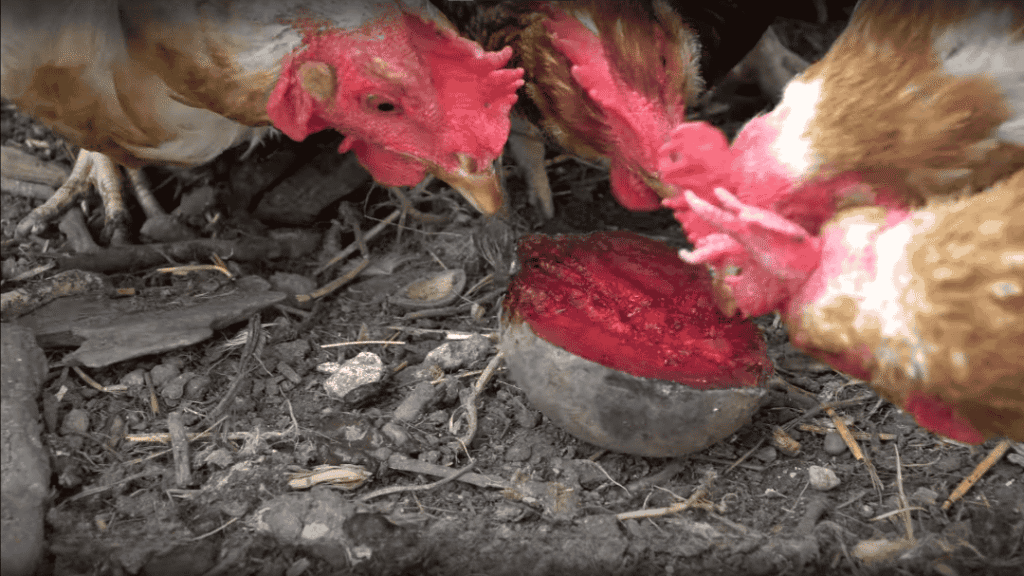
Feeding Beets to Your Chickens
Feeding beets to your chickens is a great way to provide a nutritious treat, packed with vitamins, minerals, and fiber. Whether you have free-range hens or backyard flocks, ensure you prepare the beets by washing, chopping, or shredding them into small pieces.
You might also consider cooking the beets to promote easier digestion. However, remember to feed them in moderation and limit them to 10% or less of their total diet to avoid digestive issues.
Incorporating a variety of fruits, vegetables, and grains into their meal plan keeps your flock happy, promotes overall health, and encourages natural foraging behaviors.
It’s also important to steer clear of harmful foods like avocado, green potato skins, and raw beans. For a colorful and nutrient-packed addition, try offering fresh, cooked, or mashed beets. Just start small, monitor their reaction, and enjoy watching your chickens thrive with this wholesome treat.




